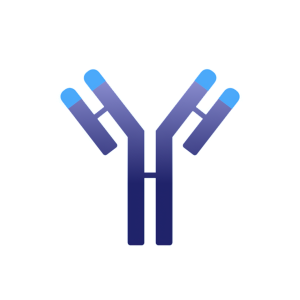Immunovant Announces Positive Results for Batoclimab Myasthenia Gravis (MG) and Chronic Inflammatory Demyelinating Polyneuropathy (CIDP) Studies
Rhea-AI Summary
Immunovant (IMVT) has announced positive results from its clinical trials for batoclimab in two autoimmune conditions. The Phase 3 study in Myasthenia Gravis (MG) achieved its primary endpoint, demonstrating significant improvements in MG-ADL scores: a 5.6-point improvement in the higher dose arm (74% IgG reduction) and a 4.7-point improvement in the lower dose arm (64% IgG reduction).
In the Chronic Inflammatory Demyelinating Polyneuropathy (CIDP) Phase 2b study's Period 1, patients showed a mean improvement of 1.8 in adjusted INCAT disability scores. Notably, an 84% responder rate was observed in patients achieving over 70% IgG reduction. Both studies confirmed that deeper IgG reductions correlated with better clinical outcomes.
The company has active INDs for both conditions and plans to initiate pivotal studies for their lead asset IMVT-1402 in these indications.
Positive
- Phase 3 MG trial met primary endpoint with significant clinical improvements
- Strong efficacy demonstrated in CIDP study with 84% responder rate
- Clear correlation between IgG reduction and clinical benefits established
- Active INDs and imminent pivotal studies for lead asset IMVT-1402
Negative
- None.
News Market Reaction
On the day this news was published, IMVT gained 0.48%, reflecting a mild positive market reaction.
Data tracked by StockTitan Argus on the day of publication.
- Pivotal study in MG met primary endpoint of change from baseline in MG-ADL in AChR+ population at 12 weeks, with a 5.6 point improvement in the higher dose arm (with
74% mean IgG reduction) and a 4.7 point improvement in the lower dose arm (with64% mean IgG reduction) - Initial CIDP results from Period 1, following standard of care washout, demonstrate a mean improvement in the adjusted INCAT disability score of 1.8 across batoclimab arms and an
84% responder rate in those patients who achieved an IgG lowering greater than70% - In both batoclimab studies, deeper IgG reductions correlated with better clinical outcomes across a range of assessments and timepoints
- INDs active for both MG and CIDP with pivotal study initiations for lead asset IMVT-1402 in these indications expected imminently
- Immunovant and Roivant to host combined investor call to discuss these updates today, March 19, 2025 at 8 a.m. EDT
NEW YORK, March 19, 2025 (GLOBE NEWSWIRE) -- Immunovant, Inc. (Nasdaq: IMVT), a clinical-stage immunology company dedicated to enabling normal lives for people with autoimmune diseases, today reported topline results from its Phase 3 study of batoclimab in MG and initial results from Period 1 of its Phase 2b study in CIDP.
“We are excited to share positive results from our MG and CIDP studies. While neurologists and patients are very enthusiastic about currently approved FcRn inhibitors, they tell us that they also see a lot of potential for a next-generation FcRn inhibitor that can offer deeper and more durable responses for patients whose disease is still affecting their daily function. Today’s results show that deeper IgG reduction leads to deeper responses in MG and CIDP. Beyond the results in MG and CIDP, we believe that our core thesis - that deeper IgG reduction, at the levels achieved by high dose batoclimab and high dose IMVT-1402, leads to improved clinical outcomes - will apply to a wide range of auto-antibody mediated conditions,” said Pete Salzmann, M.D., chief executive officer of Immunovant.
About the Phase 3 Study in MG
The Phase 3 study in MG is a randomized, quadruple-blind, placebo-controlled study designed to assess the efficacy and safety of batoclimab in adults with MG. Following screening, participants with moderate to severe MG were randomized into Period 1 where they received high dose batoclimab (680mg weekly) or lower dose batoclimab (340mg weekly) or placebo for 12 weeks. Responders to batoclimab in Period 1, defined as ≥2-point improvement in Myasthenia Gravis Activities of Daily Living (MG-ADL) score from baseline, were re-randomized 1:1:1 to batoclimab (340mg weekly or 340mg every other week) or placebo for 12 weeks (Period 2). The primary endpoint of the study was mean change from baseline in MG-ADL in acetylcholine receptor antibody positive (AChR+) participants at Week 12 (end of Period 1).
About the Phase 2b Study in CIDP
The Phase 2b study in CIDP is a randomized, quadruple-blind, placebo-controlled study designed to assess the efficacy and safety of batoclimab in adult participants with active CIDP.
Similar to other recent studies, this Phase 2b study in CIDP begins with a non-placebo controlled run-in (Period 1), during which participants whose disease had worsened during standard of care washout then receive either 340 mg or 680 mg batoclimab weekly by subcutaneous injection. Participants who respond to batoclimab therapy in Period 1 (responders are defined as those achieving a ≥1 point improvement from Period 1 baseline in adjusted Inflammatory Neuropathy Cause and Treatment (aINCAT) disability score), are then randomized 1:1 to receive either 340 mg batoclimab or placebo weekly in a 24-week withdrawal period (Period 2). The primary endpoint will assess the percentage of participants who remain relapse-free at Week 36, at the end of Period 2. The study is ongoing and has not yet been unblinded. Therefore, pooled data are currently available from Period 1 and no data are available for the primary endpoint at the end of Period 2.
Phase 3 MG Study Results Highlights
In the Phase 3 MG study, batoclimab met its primary endpoint of mean change from baseline in MG-ADL in AChR+ participants. Participants entering the study and randomized to 680mg of batoclimab given weekly by subcutaneous injection achieved a 5.6 point improvement in MG-ADL at Week 12, while those randomized to 340mg of batoclimab given weekly by subcutaneous injection achieved a 4.7 point improvement in MG-ADL at Week 12 and those randomized to placebo experienced a 3.6 point improvement in MG-ADL at Week 12. Large differences between the dosing arms were observed, especially for deeper response thresholds. Results in Period 2 (Weeks 12-24) were as expected, with patients re-randomized to 340mg weekly outperforming those whose dose was reduced. Additional efficacy results are summarized in the table below:
| Snapshot of Efficacy Measures Observed (% AChR+ Population) | Placebo | Batoclimab 340mg (QW)^ | Batoclimab 680mg (QW)^^ |
| Minimal Symptom Expression (MSE*) at Wk 12 | |||
| Durable MSE** | |||
| Early Super Responders (≥5 point reduction in MG-ADL score by Wk 2) | |||
| Early Super Responders (≥6 point reduction in MG-ADL score by Wk 2) | |||
| Early Super Responders (≥7 point reduction in MG-ADL score by Wk 2) | |||
| ^ all p<0.05 except early super responders ≥7 where p=0.07; | |||
| ^^ all p<=0.001 | |||
| * MSE defined as patients that achieved an MG-ADL score of 0 or 1 at Week 12 | |||
| ** Durable MSE defined as patients maintaining MSE for >6 weeks, amongst those that achieved MSE prior to or by Week 6 | |||
Safety and tolerability were observed to be consistent with prior batoclimab studies.
Phase 2b CIDP Study Results Highlights
Initial batoclimab data in 73 patients pooled across all cohorts for the run-in Period 1 of the Phase 2b CIDP study demonstrated a 1.8 point improvement in aINCAT (compared to Period 1 baseline) at Week 12. An
Safety and tolerability were observed to be consistent with prior batoclimab studies.
Path Forward in MG and CIDP
Immunovant plans to initiate potentially registrational studies in both MG and CIDP with lead asset IMVT-1402 and has received clearance for its Investigational New Drug (IND) applications for both indications as previously disclosed. Despite meaningful improvement for patients with MG and CIDP to date with the anti-FcRn class, there continues to be significant unmet need. IMVT-1402 is a potentially best-in-class anti-FcRn that may deliver deeper and more durable clinical responses for patients with MG, CIDP, and many other challenging autoimmune conditions.
At present, Immunovant does not intend to seek regulatory approval for batoclimab in MG or CIDP and is focused on leveraging data and learnings from the batoclimab studies to inform and accelerate its programs with IMVT-1402. Immunovant will wait to make a final decision about regulatory submissions for batoclimab until the results of the ongoing Phase 3 studies of batoclimab in thyroid eye disease are available.
Webcast Details
The company will host an investor call and webcast with Immunovant CEO Dr. Pete Salzmann, M.D., MBA and Roivant CEO Matt Gline at 8:00 a.m. EDT today, March 19, 2025 to discuss these updates. Please click here to register for the event. The live webcast will also be available under the News & Events section of Immunovant’s website and the Events & Presentations section of Roivant’s website. A replay of the event and presentation will be available immediately following the event.
About Immunovant, Inc.
Immunovant, Inc. is a clinical-stage immunology company dedicated to enabling normal lives for people with autoimmune diseases. As a trailblazer in anti-FcRn technology, the Company is developing innovative, targeted therapies to meet the complex and variable needs of people with autoimmune diseases. For additional information on the Company, please visit immunovant.com.
Cautionary Note Regarding Forward-Looking Statements
This press release contains forward-looking statements for the purposes of the safe harbor provisions under The Private Securities Litigation Reform Act of 1995 and other federal securities laws. The use of words such as "can," “may,” “might,” “will,” “would,” “should,” “expect,” “believe,” “estimate,” “design,” “plan,” "intend," and other similar expressions are intended to identify forward-looking statements. Such forward looking statements include Immunovant’s expectations relating to the results of its batoclimab clinical trials; Immunovant's plan to develop IMVT-1402 in MG and CIDP; and the potential benefits of IMVT-1402 and its potential best-in-class profile. All forward-looking statements are based on estimates and assumptions by Immunovant’s management that, although Immunovant believes to be reasonable, are inherently uncertain. All forward-looking statements are subject to risks and uncertainties that may cause actual results to differ materially from those that Immunovant expected. Such risks and uncertainties include, among others: initial results or other preliminary analyses or results of early clinical trials may not be predictive final trial results or of the results of later clinical trials; the timing and availability of data from clinical trials; the timing of discussions with regulatory agencies, as well as regulatory submissions and potential approvals; the continued development of Immunovant’s product candidates, including the timing of the commencement of additional clinical trials; Immunovant’s scientific approach, clinical trial design, indication selection, and general development progress; future clinical trials may not confirm any safety, potency, or other product characteristics described or assumed in this press release; any product candidate that Immunovant develops may not progress through clinical development or receive required regulatory approvals within expected timelines or at all; Immunovant’s product candidates may not be beneficial to patients, or even if approved by regulatory authorities, successfully commercialized; the potential impact of global factors, geopolitical tensions, and adverse macroeconomic conditions on Immunovant’s business operations and supply chain, including its clinical development plans and timelines; Immunovant’s business is heavily dependent on the successful development, regulatory approval and commercialization of IMVT-1402 and batoclimab; Immunovant is at an early stage of development for IMVT-1402 and in various stages of clinical development for batoclimab; and Immunovant will require additional capital to fund its operations and advance batoclimab and IMVT-1402 through clinical development. These and other risks and uncertainties are more fully described in Immunovant’s periodic and other reports filed with the Securities and Exchange Commission (SEC), including in the section titled “Risk Factors” in Immunovant’s Form 10-Q filed with the SEC on February 6, 2025, and Immunovant’s subsequent filings with the SEC. Any forward-looking statement speaks only as of the date on which it was made. Immunovant undertakes no obligation to publicly update or revise any forward-looking statement, whether as a result of new information, future events, or otherwise.
Immunovant Investor Contact:
Renee Barnett, MBA
Chief Financial Officer
Immunovant, Inc.
info@immunovant.com








